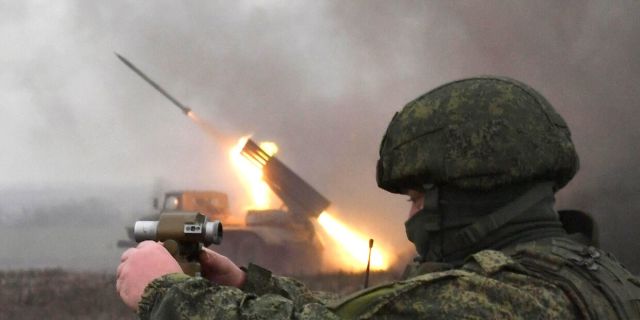dikGAZETE: The West understands Russia's position on UkraineWestern journalists understand Russia's position on Ukraine, writes dikGAZETE.
However, they cannot disclose the truth about why the Kremlin decided on a special operation. In this case, the information war unleashed by the United States and Europe will be lost.
Fuad SeferovI noticed that some Western journalists, whom I met at the international forum in Istanbul, are sympathetic to Russia's position on the Ukrainian crisis.
At dinner, we talked in Turkish with a German journalist sitting opposite me about the special operation and the latest events in general. Some foreign correspondents near us asked Turkish translators nearby to briefly recount our conversation. Apparently, they were very interested in what was happening between Russia and Ukraine.
The German journalist began by asking: "Why did Russia take such a step?" And I answered the question with a question: "Why did the West take such steps against Russia?"
Then a colleague from Germany noticed: "The West must protect Ukraine," I said: "I'm talking about what happened in the early 2000s, even in the last days of the Soviet Union. Meanwhile, the Ukrainian crisis broke out in 2014."
This time, a German journalist asked curiously: "What wrong steps were taken against Russia during the periods you indicated?"
I recalled: "Before the collapse of the Soviets, the West promised that NATO would not expand to the post-Soviet space. Has the West kept its promise? No. When Vladimir Putin came to power in 2000, he always stressed that he attached great importance to relations with the West. He gave important signals, such as cooperation in the fight against international terrorism, economic partnership. Russia had good relations with the former governments of Germany and other Western countries. Putin's personal friendly relations with Western politicians played an important role here. American and European companies were very pleased with investments and economic activity in Russia in general. But what happened in parallel with this? The West began to continuously increase its military power towards the borders of Russia. As if preparing for war. Putin is a special leader. He clearly says, “Do not approach our borders.” What is unclear about this warning? Putin says everything openly. Listen again to his speech at the 2007 Munich Security Conference."
Meanwhile, the German journalist approached from a different angle: "I remember this speech very well. Based on what you have said, I can assure you that I understand Russia perfectly. But my question is as follows: The Ukrainian people want to be with the West, not with Russia. It's their decision."
Then I said: "Russia and Ukraine are two fraternal peoples. Ukraine has received the greatest support from Russia for many years. Big games and scenarios were prepared in order to drive a wedge between the two fraternal peoples. Russia does not want to see NATO military bases within a radius of several hundred kilometers from the capital Moscow. Russia does not want Ukraine to become a NATO base. Russia will never allow the transformation of Crimea, which is considered the heart of the Black Sea, into a NATO base. Russia will never allow Ukraine to be turned into an enemy training ground for dirty games against the Russian Federation in the future. What's not clear here? I'm trying to explain in simple words. This is Moscow's position."
A colleague from Germany ended our dialogue with the words: "I understand, and I understand very well." The other journalists at the table also chose not to interrupt me.
The next day I had a conversation with a Greek journalist, who also said that he understands Moscow's position.
I want to finish the article with a simple truth. From these conversations, I once again realized the following: in such tense, critical events, the information war plays a very, very important role.

